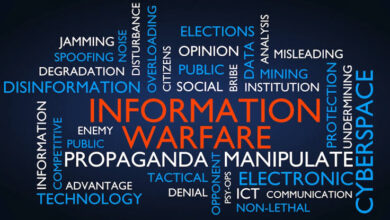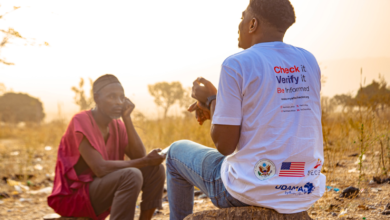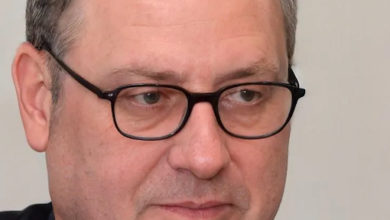FactCheckAfrica Interventions Spurs Critical Thinking Among Kwara Residents
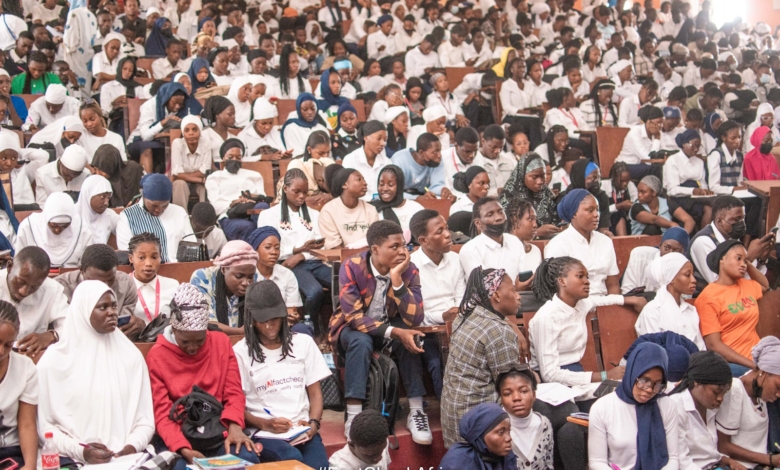
By Oluwaseye Ogunsanya
In the wake of public backlash against a false claim made by Governor Abdulrahman Abdulrazaq during the presentation of Kwara State’s 2025 budget, FactCheckAfrica’s important role in strengthening critical thinking and media literacy has taken center stage. The governor’s assertion that the state-funded WAEC, NECO, and BECE exams for students in 2024 was debunked after citizens, including parents and school principals, refuted the claim. This controversy reveals the growing awareness among citizens to scrutinize information, a skill FactCheckAfrica has been actively propagating.
The False Claim and Public Reaction
During his budget presentation, Governor Abdulrazaq, among other things, stated that his administration had funded the education of thousands of students for major examinations.
“We also funded education for 66,000 entrance exam candidates, 58,420 BECE candidates, 28,500 WAEC candidates, and 27,000 NECO candidates,” the governor said.
However, parents quickly debunked this, revealing they had personally financed their children’s exams. “It is ridiculous to make such a claim. I paid for my children’s WAEC and NECO fees myself,” a concerned parent said in a radio programme monitored by an online newspaper, The Gazette last Tuesday.
Faced with mounting pressure, the Kwara State Ministry of Education and Human Capital Development admitted the error, clarifying that only Placement Common Entrance Examinations were funded by the state, while parents bore the costs of WAEC and NECO.
“The state government, through the Ministry, only conducted the Pre-WAEC and NECO activities. It did not fund these examinations. They are parents’ sponsored.” The statement reads.
“This mixup, as inserted in the budget speech of His Excellency, Governor AbdulRahman AbdulRazaq, came from the Ministry of Education and Human Capital Development. We own and regret the mixup.” It added.
FactCheckAfrica’s Role in Empowering Citizens
This incident highlights the results of FactCheckAfrica’s sustained efforts to equip citizens with critical thinking skills and the ability to verify information. As a leading fact-checking organization in Nigeria, FactCheckAfrica has carried out numerous interventions across Kwara State, targeting students, grassroots communities, and media practitioners.
These initiatives include Campus Outreach; which trained over 5,000 students from institutions like the University of Ilorin, Kwara State University, and Kwara Polytechnic on media literacy and fact-checking, Community Sensitization; reaching over 1,000 citizens in rural and urban communities to raise awareness about misinformation and empower them with tools for verification as well as Radio Campaigns; broadcasting educational jingles across local stations to promote critical thinking among citizens, ensuring even offline communities are not left behind.
These efforts and interventions align with our vision of ensuring an inclusive fight against information disorder and it is good to see that they have translated into tangible results, as evidenced by the swift public reaction to the governor’s false claim. More than ever, citizens are now questioning information from official sources and holding authorities accountable.
Closing Out
To conclude, the recent incident in Kwara State demonstrates the need for accurate information and responsible communication by government officials. They should desist from fabricating falsehood, instead data should be internally double checked with relevant authorities before going public with them, and in any case where there is a mistake or mixup, they should own up to it, delete the post or make swift corrections to avoid heating the polity and to also strengthen the trust between them and the citizenry.
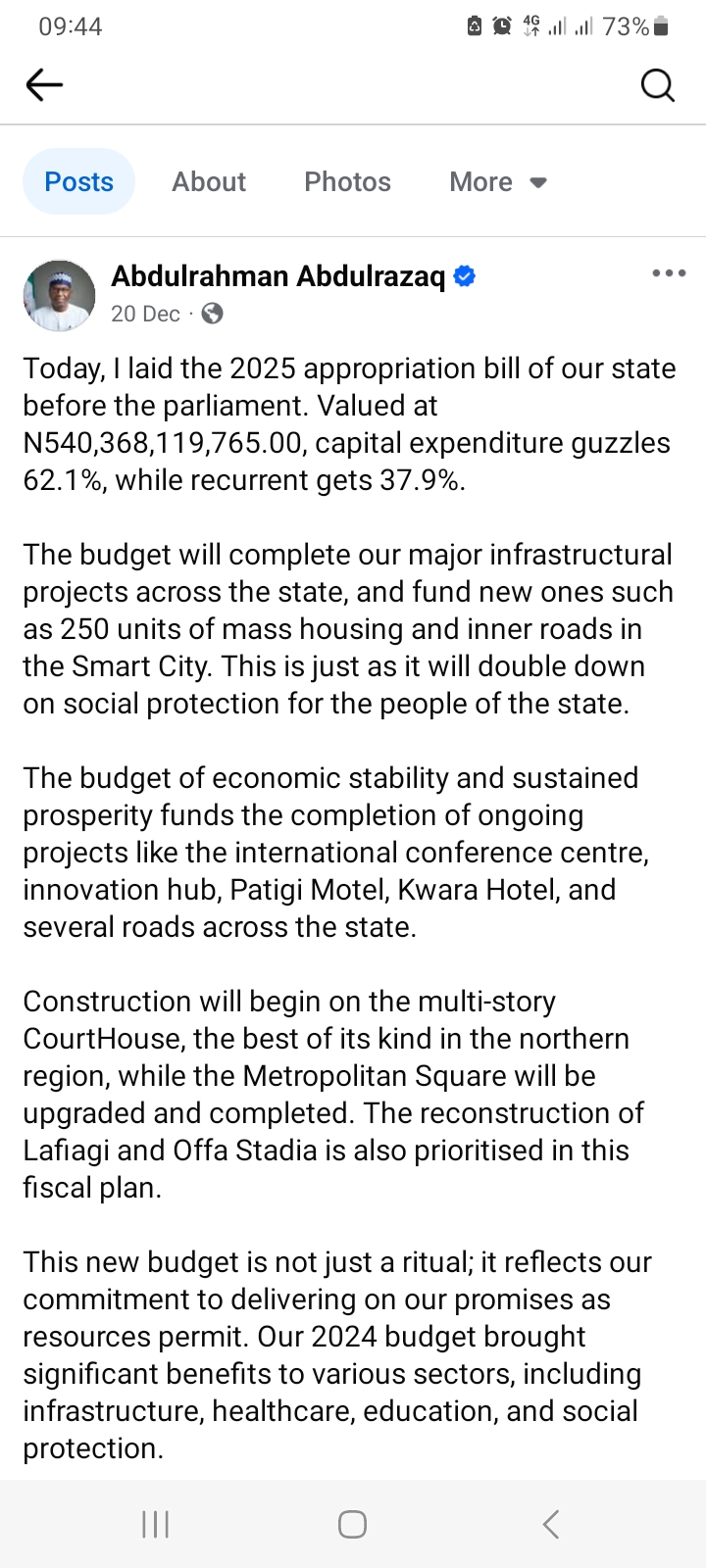
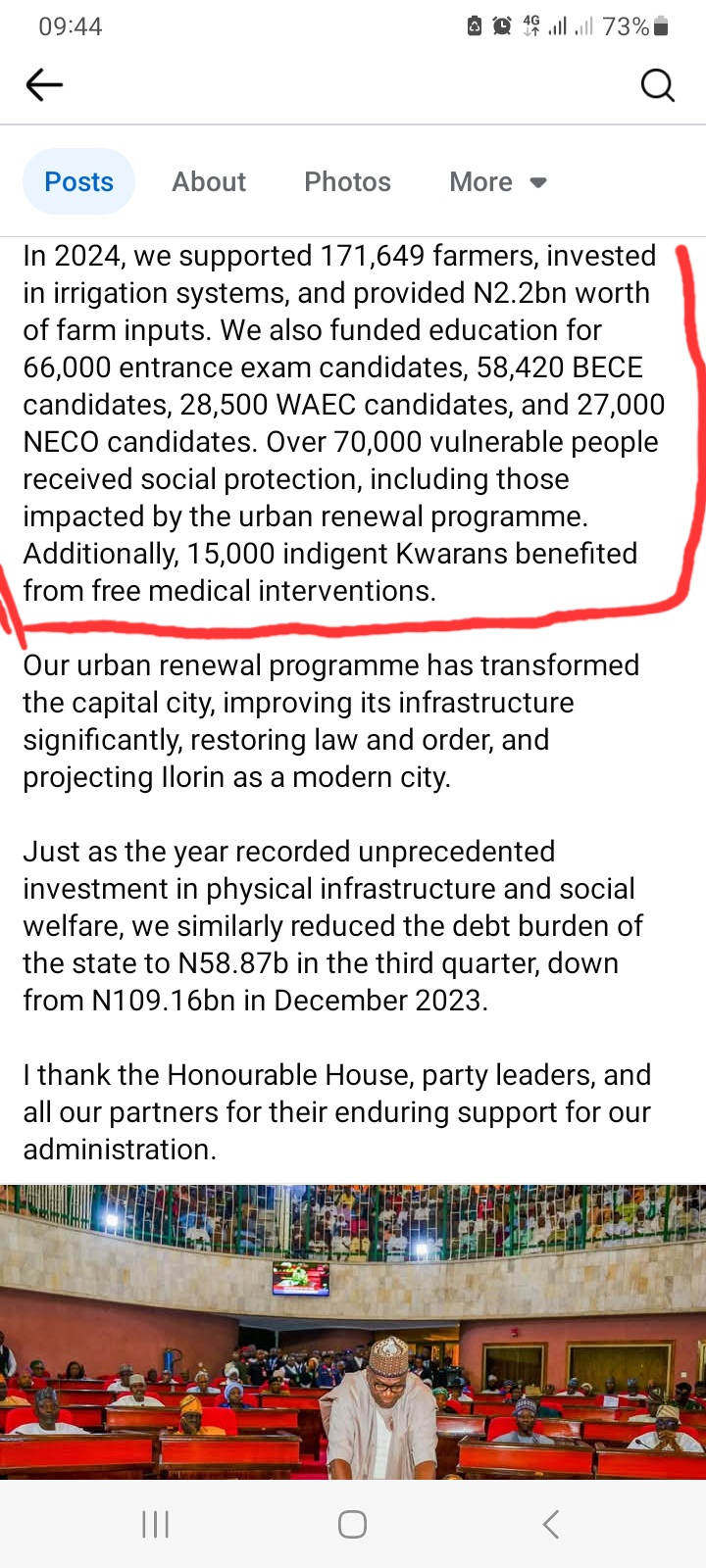
Screenshot of governor Abdulrazaq’s post on the budget presentation. Highlighted part shows that the false claim is yet to be edited or deleted days after the education ministry admitted that it was a mixup
Notably, this underscores the growing importance of critical thinking among citizens, a skill that FactCheckAfrica has diligently worked to cultivate. Through targeted interventions in schools, communities, and media, FactCheckAfrica has empowered Nigerians to question and verify information before accepting it as fact. This proactive approach combats misinformation and encourages a culture of accountability and transparency in governance. As more citizens embrace fact-checking and critical thinking practices, the ripple effect will be a more informed populace and a strengthened democracy.
